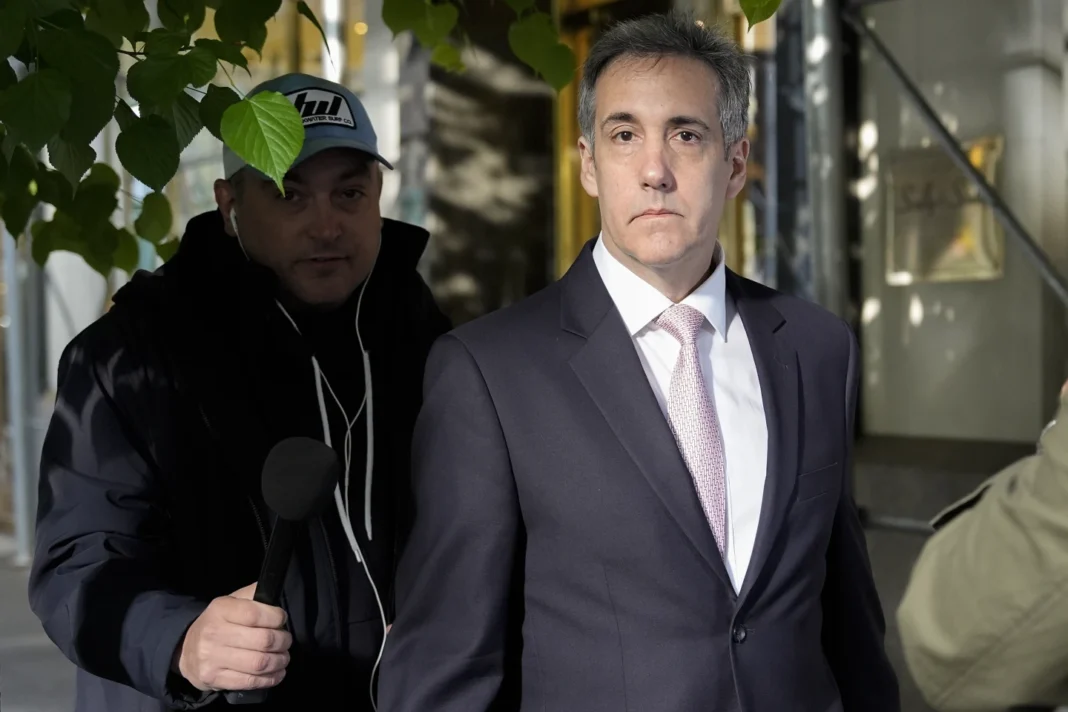|
Getting your Trinity Audio player ready...
|
Edited by: Fern Sidman
On Monday, the Supreme Court put a definitive end to former lawyer Michael Cohen’s legal efforts to pursue a lawsuit against former President Donald Trump, dismissing Cohen’s appeal in what represents the final chapter of a prolonged legal battle. Cohen had sought to revive his claims that his 2020 imprisonment was a retaliatory measure orchestrated by the Trump administration in response to his publication of a book critical of the then-president. This decision, as reported by Fox News, marks the culmination of Cohen’s efforts to seek damages from Trump, former Attorney General William Barr, federal prison officials, and the federal government.
The lawsuit, which had garnered significant attention, was Cohen’s attempt to hold key figures in the Trump administration accountable for what he described as an abuse of power. Trump attorney Alina Habba, in response to the Supreme Court’s dismissal, expressed relief over the decision. “Michael Cohen has exhausted every avenue of his pathetic attempt to drag my client into court time and time again,” Habba told Fox News Digital, emphasizing that Cohen’s claims had been deemed frivolous and lacked merit. The court’s decision to deny Cohen’s petition marked, in her words, the final rejection of Cohen’s “desperate claims.”
Cohen’s legal struggles stem from his criminal history while working as Trump’s personal attorney. Having served three years in prison for various federal crimes, including lying to Congress, Cohen’s imprisonment became the focal point of his accusations against Trump. According to the Fox News report, Cohen alleged that his return to prison in July 2020—following his release to home confinement during the pandemic—was driven by political retribution. Cohen had refused to sign an agreement that would limit his social media activity and media engagements, a refusal that resulted in his return to federal custody. Cohen maintained that his imprisonment was a direct response to his criticism of Trump, specifically the release of his memoir, “Disloyal,” which exposed insider details of his time working for the former president.
In an earlier statement provided to Fox News, Cohen underscored his belief that his constitutional rights had been violated. He asserted that the U.S. Department of Justice had been “weaponized” under Trump’s leadership, transforming the executive office into a vehicle for personal vengeance. “The Constitution is the bedrock of our democratic republic and is what makes America the beacon of the world,” Cohen said, according to the Fox News report. He warned that allowing a president to utilize the DOJ in this manner risked leading the nation down the path toward autocracy.
Despite Cohen’s repeated assertions, the Supreme Court’s decision, as reported by Fox News, reaffirms the position held by Trump’s legal team and federal officials: that Cohen’s accusations were legally baseless. The rejection of the appeal is the final resolution of this legal matter, signaling that the courts will not entertain further efforts by Cohen to link his imprisonment to an alleged retaliatory conspiracy orchestrated by Trump. For Cohen, this ruling shuts down the avenue to challenge what he continues to claim was an unlawful and politically motivated act of retribution.
According to Fox News, Cohen’s petition to the Court invoked foundational democratic principles, arguing that “Presidents are not kings” and that no executive official should have the power to “lock away critics” without consequence.
In his Supreme Court filing, Cohen claimed that the Trump administration’s actions were not only unconstitutional but also a dangerous precedent for executive overreach. As quoted by Fox News, Cohen emphasized, “That cannot be the law in the country the Founders thought they created when they threw off the yoke of the monarch.”
The legal proceedings took a significant turn in 2020 when U.S. Federal Court Judge Alvin K. Hellerstein ruled that Cohen’s return to prison was, in fact, a violation of his First Amendment rights. During a hearing, Judge Hellerstein stated that the decision to send Cohen back behind bars was retaliatory in nature, aimed at silencing him and preventing him from publishing his memoir. As Fox News reported, the judge was clear in his assessment: “The purpose of transferring Mr. Cohen from furlough and home confinement to jail is retaliatory.” He further stated that Cohen’s desire to exercise his rights by publishing his book and discussing it openly on social media was at the heart of the Trump administration’s actions against him.
Despite this favorable ruling from Judge Hellerstein, Cohen’s efforts to seek monetary damages and further accountability from Trump, former Attorney General William Barr, and other federal officials faced significant legal hurdles. Two lower courts had already ruled against Cohen’s claims, relying on a narrow interpretation of the 1971 Supreme Court case Bivens v. Six Unknown Named Agents. The Bivens decision had established a limited precedent that allowed citizens to sue federal officials for constitutional rights violations, but Cohen’s case did not meet the strict standards required for success under this doctrine, according to Fox News.





